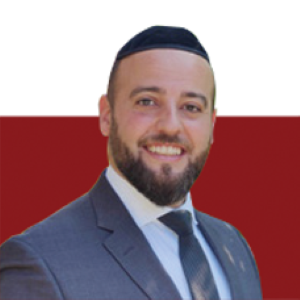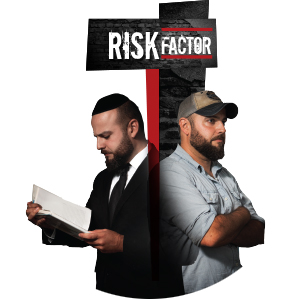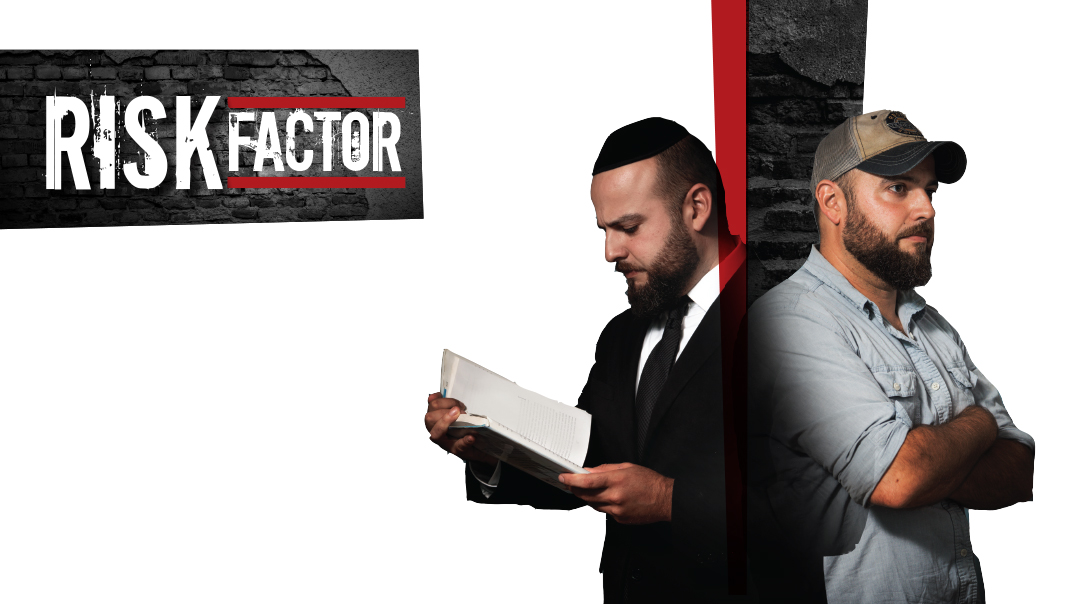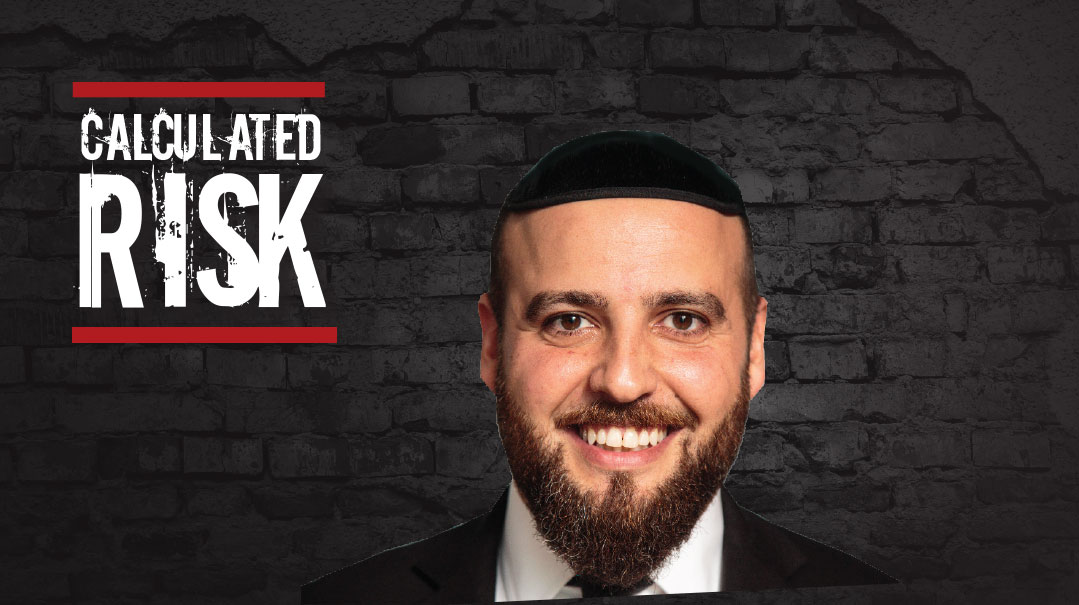The Waiting Game

Waiting means building a relationship without a single ulterior motive
I

know a guy who is a former Marine recon sniper, and I once asked him what the hardest part of the job was. He didn’t hesitate. “The waiting,” he said. “You settle into your position behind the rifle, and you have no idea if you’re going to be there for two minutes or two days. You just sit and wait for the target to show up.”
That resonates in my line of work. When you take on the responsibility of working with an individual, no matter what the issues are, 80% of what you’re going to do is wait.
You build a relationship and you wait. You nurture the relationship and you wait. You learn together, you hang out together, you develop a connection, and you just wait. So that when that person is ready to change, you’re there, in position, ready to take that shot.
Izzy had been asked to leave three yeshivos before he applied to Yesod. I did a little research, and everyone told me the same thing: He’d start out strong but then lose interest and stop showing up. He also never connected with any of the rebbeim.
“What Izzy really needs is a relationship with a rebbi,” Izzy’s father told me. “But he pushes away any rebbi that reaches out.” There was a deep sadness in his voice. “I think he wants it, but he’s afraid of that kind of closeness.”
I had interviewed Izzy two days before and came to the same conclusion. His father was spot on. This was a huge advantage: When a parent is tuned in and really “gets” their kid, they can give us information that would otherwise take months to gather. This is the secret weapon for how to help kids: parents. If you can help a kid communicate better with his parents, if you can restore or build a relationship between the child and his parents, most other issues will work themselves out.
I asked Izzy’s father the same three questions I ask every parent.
“What do you think he needs to work on most?”
“His trust issues,” Izzy’s father said.
“In a few months down the line, what would you like to point at and say, ‘Wow, I never thought he would be able to…’?”
“Have a real relationship with a rebbi.”
The last question is the one that determines whether this is going to work.
“Are you and your wife committed to accomplishing this goal? That means that for the immediate future, you’re going to focus only on this goal and other points relating to this goal. Any other wish, hope, or dream you have for Izzy is going to remain a wish, hope, or dream for now. We’re not going to address them or even think about them until we reach the goal you just described.”
“We’re with you a hundred percent,” he said firmly.
I added one more question.
“Any advice you got for me to try and get through to him?”
“Yes,” he said. “Be patient.”
Remembering that Izzy had started strong but petered out in his previous yeshivos, I worked hard to set him up for success. I created the perfect lineup: Rabbi Jacob Banin and Rabbi Shmuel Rosenberg in the morning, Rabbi AM Nussbaum and Rabbi CT Goldsmith in the afternoon. This was a dream team; one day in the program, and Izzy would be hooked.
The only problem was that he never showed up. Not the first day. Not the first week.
I called his father. “Help me out here,” I said. “You need to convince him to at least give it a try.”
“He will,” his father said. “But we need to wait for him to be ready.”
So we waited. And his father was right. Izzy came.
But then it happened —just like in his previous yeshivos. Izzy ran out of steam, and his attendance became spotty.
Izzy was a good kid. He was close with his parents, and they were supportive. He wasn’t doing anything that could be categorized as very dangerous behavior. The only thing we could do was wait it out.
“Waiting it out” is a very specific art form. It’s not “ignoring,” and it’s not “pretending not to care.” Waiting means building a relationship without a single ulterior motive. It means spending a lot of time together and being present, without making any demands.
Izzy came for Shabbat. We hung out together on school trips. He came over for dinner here and there. Slowly, we built a relationship.
Four months into this plan, I was feeling pretty frustrated. Izzy had missed his third consecutive day of classes. Clearly, giving him his time and space was not working.
“Please,” Izzy’s father pleaded. “Don’t give up on him. I know I’ve asked so much of you already. But please keep doing what you’re doing. It’s working. I know it’s not working so quickly, but it’s working. He has more of a relationship with the rebbeim here than he’s ever had anywhere else. Please, I need you to be there for him. I know my son, he’s going to need his rebbeim.”
There was something about the relationship between Izzy and his father, something specifically about his father, that made me just want to support whatever he said. Looking back, I think it was the comfort of knowing that a healthy parent knows what’s best for their kid.
“Okay,” I told Izzy’s father. “But if there’s anything you can do to get him to up his attendance, I’d appreciate it.”
Izzy’s father was right again. As time went on, Izzy’s attendance became more consistent, and his participation also improved. Like a late blooming flower, he opened up bit by bit, and his relationships grew as well. By the end of the year, I was extremely proud of the progress Izzy had made. I was even more impressed with Izzy’s father — his commitment to his son was incredible, and it had paid off. There was an undeniable bond between Izzy and his rebbeim. I was grateful that we had listened to Izzy’s father and given Izzy the time he had needed.
It was 2:00 a.m. on a Tuesday morning in late July when I got the call. The screen said it was Izzy.
“Hello?”
Silence.
I looked at the screen —the call was still connected.
“Hello?” I said again. “Izzy?”
I thought I heard a sob.
“Rebbi?”
It usually made me smile to hear Izzy use that term — it wasn’t just a title, it was real — but tonight something was very wrong.
“Izzy? Are you okay?”
Now he was crying openly. “Rebbi,” he said, “my father passed away.”
I usually manage to hide my reactions, but here I couldn’t contain my tears.
Over shivah, I learned that Izzy’s father had been sick for three years. Izzy had begged him not to tell us.
Please, Izzy’s father had said, I need you to be there for him. I need you to be his rebbeim.
Izzy’s father was right — Izzy would need his rebbeim. But we would never replace the love and beauty that this man had brought into his son’s life.
Identifying details have been changed to protect the privacy of patients, their families, and all other parties.
Rabbi Yossi Bensoussan serves as mashgiach ruchani at Yeshiva High School of Cleveland. He is a Certified Alcohol and Substance Abuse Counselor (CASAC) who currently maintains a private practice, and does motivational speaking and community education on addiction all over the US and Israel.
(Originally featured in Mishpacha, Issue 799)
Oops! We could not locate your form.









